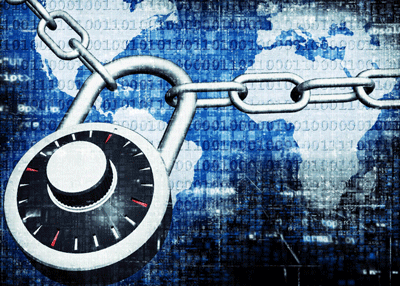Internet users receive a host of free information and access to online services, but reduced privacy is part of the deal.
By Michael Suman
Every year since 2000, the Digital Future Survey has revealed that large numbers of Americans worry about violations of their personal privacy online. For example, in 2016, 57 percent of respondents agreed or strongly agreed that they are concerned that corporations are violating their privacy, and 52 percent felt similarly about government violations.
 But how much privacy should we expect to have? In a sense, internet users enter into a social contract whereby they are willing to give up some of their privacy for all the free services and information that will flow their way online. Moreover, when they agree to the terms and conditions required for using services like Facebook and Google they are actually entering into a legal contract.
But how much privacy should we expect to have? In a sense, internet users enter into a social contract whereby they are willing to give up some of their privacy for all the free services and information that will flow their way online. Moreover, when they agree to the terms and conditions required for using services like Facebook and Google they are actually entering into a legal contract.
The Privacy Versus Access Bargain
This basic idea of giving up some privacy in exchange for the conjoined blessings that will flow in open societies predates the internet by decades. In 1967, writing for the majority in Time, Inc. v. Hill, Supreme Court Justice William Brennan wrote:
“One need only pick up any newspaper or magazine to comprehend the vast range of published matter which exposes persons to public view, both private citizens and public officials. Exposure of the self to others in varying degrees is a concomitant of life in a civilized community. The risk of this exposure is an essential incident of life in a society which places the primary value on freedom of speech and press.”
On the other hand, there have long been conflicting notions. For example, in 1890 Louis Brandeis and Samuel Warren wrote an influential article entitled “The Right to Privacy” in the Harvard Law Review. There they spoke of “the right to be left alone,” a phrase that has resonated and become familiar not only in the law, but in everyday life. In contradistinction, if not opposition, to Brennan’s later notion, Brandeis and Warren’s article argues that although freedom of speech and press are fundamental, they are not the only essentials of a free society.
A balance is certainly needed in the realm of speech versus privacy. On the other hand, we should be wary of putting too much weight on the latter, especially as one of the distinctive features of our American society is that it is arguably more libertarian and speech protective than any other country on the planet.
A Cautionary Tale
The European Union’s “right to be forgotten” shows how an over-investment in privacy can lead to questionable results.
In its efforts to protect personal privacy, the EU requires that Google and other search engines must, upon request, remove links to published content that includes information that is now determined to be “inadequate, irrelevant, or no longer relevant.”
Note here that the truth is no defense. However accurate the information was or remains, it must be removed unless it is determined to still be “relevant.”
In 2015 Britain’s Telegraph newspaper published summaries of articles that regulators, following EU directives, had ordered it to delete.
These deletions included:
- The story of a doctor convicted of drugging his pregnant mistress so that she would miscarry their son;
- An article detailing how the Roman Catholic Church reached an out-of-court settlement with a former boy scout who claimed that he was abused by a friar who happened to be the son of the Lord of the Rings author, J. R. R. Tolkien;
- An account of a detective who, after threatening to kill a colleague, sparked an armed siege inside a police office;
- A piece about a man who was jailed for eight years for stealing more than 34 million British pounds from a dotcom company.
No doubt as these private behaviors became public the reported incidents caused pain, discomfort, and embarrassment to those who were written about, as well as to those related to them.
But the required deletions provoke important questions:
- Did the lingering remains of this exposure unfairly violate anybody’s privacy rights, especially as balanced with the public’s right to know?
- How much privacy should people be entitled to, especially in the light of the importance of the dissemination of truthful information in a free and open society?
- Should the government protect individuals’ feelings and reputations in the light of their own misdeeds, including those transgressions that have had a noted impact on society?
The EU now requires digital companies to expunge truthful information of murders, deaths, trials, and foul deeds of every conceivable type. Yes, privacy rights should be respected. Violation of privacy is rightly an issue of concern.
But, as in this example, required state suppression of the truth about matters of public importance and the related sanitizing of history is a bridge too far.
__________

Michael Suman is the Center’s Research Director.
See all Analysis columns.
July 26, 2017

